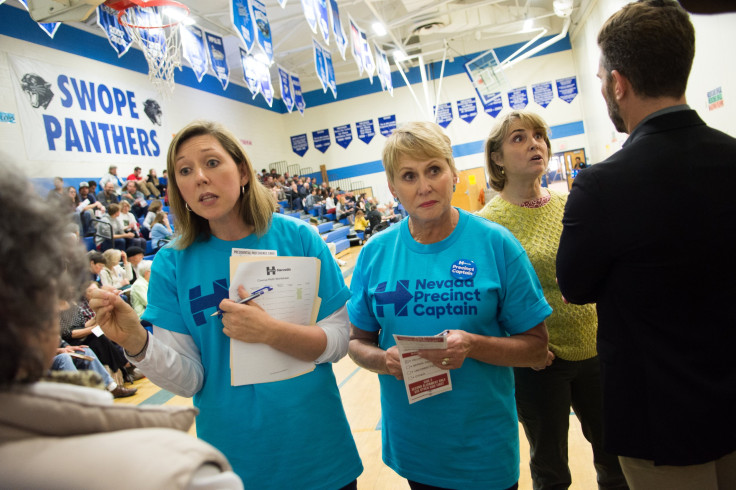Low-Tech Nevada Caucus Could Be An Added Circus In An Already Crazy Republican Presidential Race

The last two Republican caucuses in Nevada, a critical swing state in general elections, weren’t competitive at all. Mitt Romney won easily in 2012 and 2008, owing much of his support to the state’s sizable Mormon community. But this year’s race looks much tougher to call, and that could mean chaos for the caucuses, the Wall Street Journal reported.
In Nevada, county Republican officials administer the caucuses and report results. That’s different from the two preceding primary states, New Hampshire and South Carolina, where the state parties are in charge. First-in-the-nation Iowa hired Microsoft to set up a state-of-the-art reporting system, but Nevada’s is decidedly lower-tech.
Volunteers at each of the state’s 36 caucus sites will count votes by hand, write the totals on an envelope, and text a photo of the envelope to Clark County Republican Party Chairman Ed Williams and state party officials.
“The official number will be whatever is photographed,” Williams told the Journal.
Nevadans hope this system will perform better than the one they used four years ago, where county officials in the rural reaches of the state outside of Las Vegas emailed Microsoft Excel spreadsheets with their results to Nevada GOP headquarters. But formatting issues with the spreadsheets led to the votes being counted by hand, a process that went on for several days after the caucus.
Adding to the potential confusion is the fact that some of the state’s caucuses start at 5 p.m. and some at 6 p.m. Also, caucuses in Clark County, which contains Las Vegas, have to end by 8:30 p.m. to allow for more ballot-counting time. Some others can run until 9 p.m.
Nevada is one of the first primary states whose demographics are representative of the country at large, which makes it a good litmus test for a candidate’s national appeal. But according to the Journal, Republican insiders say a failure to conduct an organized caucus could jeopardize the state’s priority placement on the calendar.
Polling the state’s primary electorate is notoriously difficult, but Romney was widely regarded as a heavy favorite in the last two cycles, which limited how much could really be read into the results. However, this year’s race is wide open, and Nevada might be establishment favorite Marco Rubio’s best chance at winning an early state. But the confusing caucus system could throw a wrench in his plans.
“There’s still a good deal of confusion on the part of the general public on how it works,” former Nevada Gov. Bob List told the Journal. “We really should have a primary here so that everyone can participate in a reasonable way.”
© Copyright IBTimes 2025. All rights reserved.





















